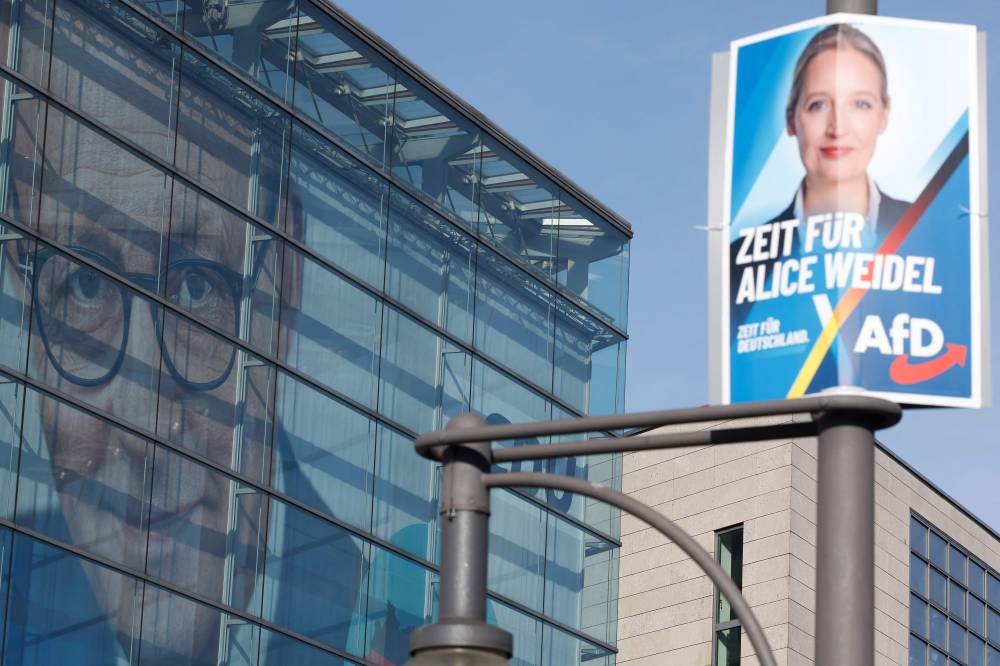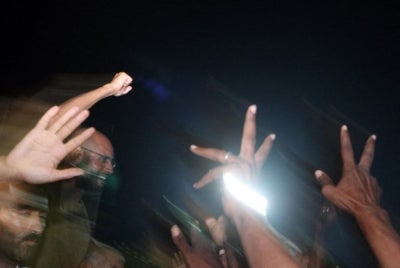Germany's far-right AfD aims to be strongest party
The AfD finished in second place with just under 21 per cent in Sunday's vote, behind only the conservative CDU-CSU which came first on 28.6 per cent.

BERLIN - German far-right leader Alice Weidel said she was aiming for her Alternative for Germany (AfD) to become the strongest party in the country after its best ever result.
The AfD finished in second place with just under 21 per cent in Sunday's vote, behind only the conservative CDU-CSU which came first on 28.6 per cent.
Weidel, the AfD's candidate to be chancellor, said she believed the party could "overtake the CDU within the next few years for the next election... to become the strongest force" in Germany.
The anti-immigration AfD remains a pariah for many German voters amid guilt over the country's Nazi past. Some chapters of the party have been labelled as right-wing extremist by German security services.
However, the party enjoyed a surge of support in the run-up to the election. Senior figures in the administration of US President Donald Trump endorsed the AfD, including tech billionaire Elon Musk, who on Sunday night called Weidel after the election result.
"This morning when I turned on my phone, I saw that I had missed calls from the US during the night, including from Mr Musk, who personally congratulated me," Weidel said.
Hungarian Prime Minister Viktor Orban, who welcomed Weidel for a visit to Budapest during the election campaign, congratulated her on the X social media platform.
"The people of Germany voted for change in immense numbers... Good luck and God bless Germany!" he wrote.
Speaking to reporters on Monday, Weidel described the AfD as "a people's party" that could appeal to a broad cross-section of society.
She also highlighted the fact that the AfD had done "very well" among young voters, hailing this as an "indicator that we are the party of the future".
The AfD came second among voters aged 18 to 24 with a share of support similar to its overall result, according to a survey by public broadcaster ARD and pollster Infratest Dimap. Only the far-left Die Linke party did better, with 25 per cent.
Weidel called for other parties to drop their so-called firewall against cooperation with the AfD.
"They cannot exclude millions of voters. That is undemocratic. The firewall must go -- no functioning democracy has a firewall," she said. - AFP
Download Sinar Daily application.Click Here!














